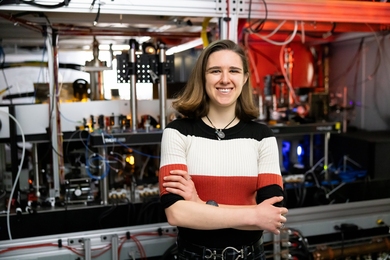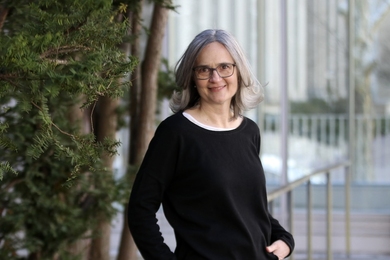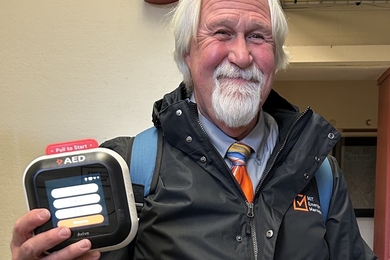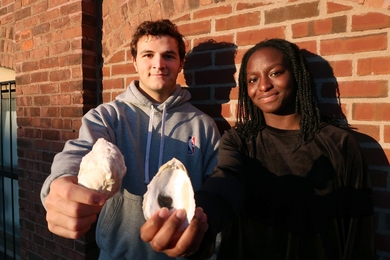The Lord Foundation of Massachusetts has established a new career development professorship in the Department of Materials Science and Engineering.
The first professor to hold the Lord Foundation Career Development Assistant Professorship of Materials Science is Dr. Caroline Ross, whose research expertise is the magnetic and mechanical properties of thin films. Professor Ross' appointment was announced by Thomas W. Eagar, department head and POSCO Professor of Materials Science and Engineering.
"We are very pleased that Professor Ross has decided to join our faculty," he said. "She brings leading edge expertise in the rapidly expanding area of magnetic media in which the problems of materials science are controlling our ability to create ever greater storage capacity. We are also delighted that the generosity of the Lord Foundation of Massachusetts will create this chair and the equipping of Dr. Ross' new laboratories. Such support is vital for MIT to attract the best young faculty."
The Lord Foundation of Massachusetts was established by the estate of Thomas Lord, the son of the founder of the Lord Corp., in order to strengthen the interactions between that company and MIT. The Lord Corp. is a privately held company with expertise in adhesives, vibration damping and control. Its headquarters are in Cary, NC, and it has manufacturing facilities in Erie, PA, and Dayton, OH.
Professor Ross received the BA with first-class honors from Cambridge University, England (1985) in materials science and metallurgy, and then continued at Cambridge for the PhD (1988) on electromigration in thin metal films. She spent two years as a postdoctoral fellow at Harvard, working on interdiffusion in electrodeposited multilayers, and in 1991 she became a research scientist at Komag, Inc., the leading merchant supplier of memory disks for magnetic storage devices. She arrived at MIT this month as assistant professor in materials science and engineering.
"I am very enthusiastic about the opportunities available for research at MIT, and I am looking forward to initiating research projects in the areas of magnetic materials and thin films for storage and sensor applications," Dr. Ross said. "The possibility of combining expertise from different departments, including physics and engineering, in order to design and make magnetic devices is particularly exciting. I am grateful to the Lord Corp. for providing support for my appointment."
Professor Ross researches the magnetic and mechanical properties of thin films used in magnetic storage media and recording heads. Current media are made with sputtered films 10-20nm thick. Designing high-end media requires a detailed understanding of the relation between film microstructure and magnetic and mechanical properties. She is interested in thin film structure and growth, and in the properties of interfaces between films, including diffusion and interface structures. She has worked on the control of film magnetic properties such as magnetic anisotropy and time-dependent magnetic behavior. She has also worked on mechanical properties of films including stress effects and tribology.
Professor Ross is a member of the Materials Research Society, the Electrochemical Society, IEEE and the American Physical Society.
OTHER LORD FUNDING
The Lord Foundation also funds the Lord Professorship of Materials Science and Engineering, and several graduate fellowships in that department. Professor Lionel C. Kimerling has held the Lord Professorship since its establishment in 1990. A portion of the Lord Professorship funds also have been used to support junior faculty research program start-up packages.
The Lord Fellowships were established in 1993 with an initial $10,000 gift from the Lord Foundation. This gift has been augmented by additional contributions from the Lord Foundation of $35,000 in 1994 and $40,000 in 1995. To date, approximately $60,000 has been awarded to three graduate students in the Department of Materials Science and Engineering in the form of two full one-term and one full summer term fellowships along with four partial-term supplemental fellowships. The remaining $25,000 was awarded to graduate students in the department in support of junior faculty during the current academic year.
A version of this article appeared in MIT Tech Talk on February 26, 1997.





